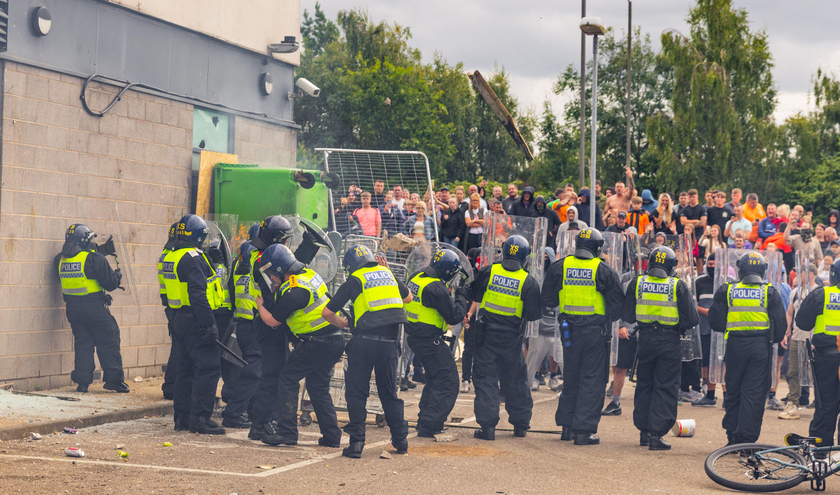The UK's recent riots make a pressing case for councils to lead and support communities as they seek to recover and heal.
Making sure that everyone feels heard is a vital part of local government's role that is consistently undervalued and resources to do it are – as ever – tight. So we all have a part to play.
A toxic transition over the past decade has allowed public discourse to demonise concepts of multiculturalism, integration, and cohesion as outdated and irrelevant. The same discourse has fuelled conspiracy theories such as the ‘great replacement' and fear of 'the Other' – and lately has used risk to children as a means of mobilising people beyond the far right.
Social media, misinformation, Islamophobia and far right rhetoric were a potent fuel for the recent riots. But the underlying deterioration of narrative has been eroding parts of our communities for much longer.
As a public servant, a Muslim woman and a mother to mixed race children, three things in particular stood out to me among the shock and despair of watching the vandalism and intimidation. These things I think will require our attention as we move forward.
Firstly, we saw young people taking part in these riots, many with their parents, shouting abuse and in some cases being arrested. The impact of this is huge. Hate and disinformation will be taken into our classrooms, deep into peer groups and will shape the world view of young people. Too many will believe their struggles are the fault of others.
I spoke to a teacher who told me her young niece had been radicalised online over the past six months by the far right. I could see how hopeless she felt. We cannot simply condemn kids as thugs and let a new generation think the way forward is to fight on our streets. Who will work to de-radicalise these young people?
Secondly, as I talked to my own family and friends, I saw the importance of shared connection and conversation between us as we recover. Older women like my mother relived the fear from the 1970s, recalling tales of the National Front and encouraging families to stay indoors.
My white mother-in-law told us she was ‘battening down the hatches' and was not going out for a while for fear of hooligans, leaving her isolated with her housebound husband. Black colleagues checked in quietly as they knew too well how this felt.
Perhaps most heartbreaking was the experience of Muslim men, for too long characterised as sexual predators and terrorists. As these men gathered in rooms up and down the UK preparing for any attacks on local community centres, mosques and hotels, their constant refrain was not to be retaliatory. They told me that the protest and violence was not surprising. They had been experiencing micro aggression and racism their whole lives. They were sadly resigned to it.
Closer to home we had to talk to our teenagers about fascism, the far right and what their dual heritage identity mean in a modern Britain – the latter something we have always celebrated as their ‘superpower.' They were all difficult and complex topics, but in having them they highlighted what brings us closer.
Thirdly, I spoke to council chief executives across the country throughout the period and saw the comfort that communities draw from their local leaders and local councils. Each one was working around the clock to help prepare for any unrest whilst supporting their political leaders to provide clear and unequivocal messages of condemnation and reassurance.
Council staff were also talking to community and faith leaders, convening partners and working tirelessly with the police to help assist them in the work they had to do. They were also the ones clearing up the damage, literally picking up the pieces in the aftermath and reassuring sections of the workforce. All of this work is something to be proud of.
Now, as the law enforcement activities wind down and the media lens shifts elsewhere, the hard work begins - that of rebuilding, reducing tensions and monitoring the pulse of local places and communities.
Public services need to work harder to communicate how we allocate finite resources. We need to be honest about the fact that we cannot meet everyone's needs in ways we would wish to.
Nor should we be too quick to assume we know what communities need. We must listen to the millions of people who connect with us each day. These interactions inform and engage. We might call it community engagement, development or capacity building, but it is all about the same thing: Making people feel that they belong.
Nazeya Hussain is interim executive director place at Lewisham LBC and is the lead for equalities, diversity and inclusion on the Society of Local Authority Chief Executives and Senior Managers (Solace) board. She writes here in a personal capacity.


